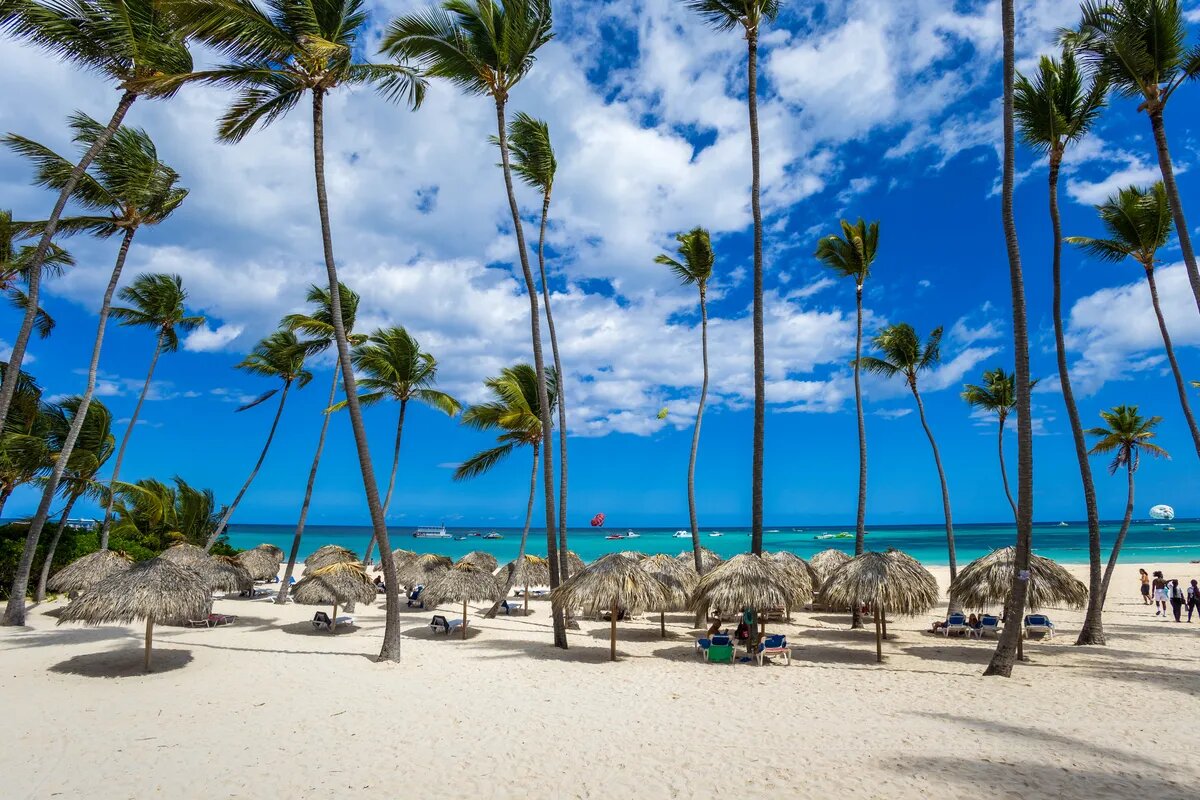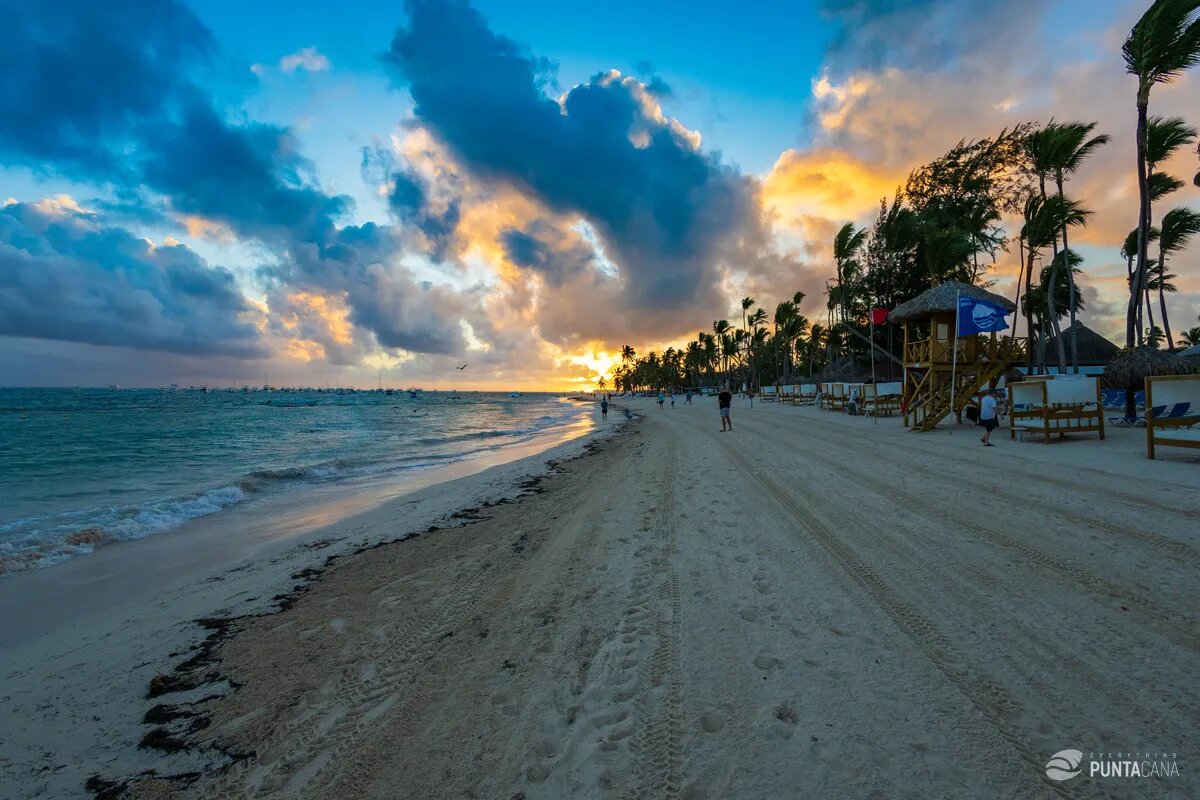Do I Have to Pay in Advance? How Payment Works for Short-Term Rentals in Punta Cana
Understanding Payment Terms for Short-Term Rentals in Punta Cana

Do I Have to Pay in Advance? How Payment Works for Short-Term Rentals in Punta Cana
Punta Cana, a tropical paradise known for its pristine beaches and luxurious accommodations, is a favorite destination for travelers seeking short-term rentals. Understanding the payment terms for these rentals is crucial to ensure a smooth and enjoyable stay. From advance payments to security deposits, this section explores the intricacies of payment practices in this vibrant locale.
1. Advance Payment Requirements
Advance payments are a common practice in the short-term rental market, especially in popular tourist destinations like Punta Cana. These payments serve as a commitment from the renter, ensuring the property owner that the booking is genuine and the dates are secured.
Typically, advance payments range from 20% to 50% of the total rental cost. This amount is usually due at the time of booking, and it helps owners manage reservations effectively by minimizing last-minute cancellations. Advance payments can also provide guests with peace of mind, knowing their rental is confirmed.
- Why Advance Payments Are Required: Property owners use advance payments to secure bookings, cover initial costs, and protect against cancellations.
- How to Make an Advance Payment: Payments are often made via credit card, bank transfer, or digital payment platforms, ensuring a hassle-free transaction.
- Refund Policies: Most rentals have specific refund policies in case of cancellations, so it’s crucial to understand these terms before making a payment.
2. Payment Upon Arrival
While advance payments are standard, some short-term rentals in Punta Cana offer the flexibility of paying upon arrival. This option might appeal to travelers who prefer to see the property before committing fully or those who might have reservations about online payments.
Paying upon arrival typically involves settling the remaining balance of the rental fee once you arrive at the property. This method offers a level of reassurance, allowing guests to verify that the accommodations meet their expectations.
- When Payment Upon Arrival Is an Option: This option is often available for last-minute bookings or through direct agreements with the property owner.
- Verification: Guests might need to present identification or booking confirmation documents upon arrival.
- Payment Methods: Cash is commonly accepted, but some owners may also accept credit cards or other forms of payment on-site.
3. Security Deposits Explained
Security deposits are an essential part of the rental process in Punta Cana, designed to safeguard property owners against potential damages or loss. Understanding how these deposits work can prevent misunderstandings and ensure a pleasant rental experience.
Security deposits are usually collected along with the advance payment or upon arrival. The amount can vary depending on the property’s value and amenities offered, but it typically ranges from $100 to $500.
Common Security Deposit Practices in Punta Cana
| Property Type | Average Deposit Amount | Refund Timeline | Conditions for Refund |
|---|---|---|---|
| Luxury Villa | $300 – $500 | 3-7 Days After Checkout | No Damages, All Keys Returned |
| Beachfront Condo | $200 – $400 | 5-10 Days After Checkout | Property Left Clean, No Missing Items |
| Standard Apartment | $100 – $200 | Immediate to 5 Days | Basic Cleaning, No Structural Damage |
- Purpose of Security Deposits: They mitigate risk for owners by covering potential damages, additional cleaning costs, or unpaid bills.
- Handling and Refund of Deposits: Deposits are typically held in escrow and refunded promptly after the property is inspected post-checkout.
- Documentation: It’s advisable to document the property’s condition upon arrival to avoid disputes when reclaiming a deposit.
Understanding the nuances of payment terms for short-term rentals in Punta Cana not only enhances your booking experience but also ensures that both guests and property owners have a seamless and transparent transaction. Whether you’re securing a beachfront condo or a luxurious villa, being informed about advance payments, on-arrival payments, and security deposits will make your travel experience more enjoyable.
Popular Payment Methods for Rentals

Punta Cana
Understanding the various payment methods available can significantly enhance your rental experience in Punta Cana. With numerous options at your disposal, choosing the right payment method ensures a smooth and secure transaction process.
1. Credit and Debit Cards
Credit and debit cards are among the most widely accepted payment methods for short-term rentals in Punta Cana. They offer a convenient and secure way to handle transactions, often providing additional benefits such as fraud protection and rewards points.
- Security and Protection: Using credit cards provides an added layer of security due to the fraud protection policies of most card issuers. This ensures that any unauthorized transactions can be disputed and resolved with minimal hassle.
- Ease of Use: Most rental properties in Punta Cana are equipped to handle card payments, facilitating ease of use for travelers who prefer not to carry large amounts of cash.
- Currency Conversion: Credit card companies often provide competitive exchange rates, making it a cost-effective option when dealing with currency conversion.
It’s advisable to inform your card issuer of your travel plans to avoid any potential blocks due to foreign transactions. Also, verify whether there are any foreign transaction fees associated with your card.
2. Bank Transfers
For those looking for a direct and often cost-effective method, bank transfers are a viable option. This method is particularly popular among rental property owners who prefer not to deal with the fees associated with card transactions.
- Direct Transfers: Bank transfers involve directly transferring funds from your account to the property owner’s account. This directness can often lead to better rates and terms.
- No Additional Fees: Unlike credit card transactions, which may incur additional fees, bank transfers typically do not involve extra charges.
- Prepayment Requirement: Some rental owners might require full or partial payment through bank transfer before arrival, ensuring the booking is secured.
While bank transfers are secure, they can take several days to process, so it’s essential to plan accordingly to ensure funds are transferred in time for your stay.
3. Digital Wallets and Payment Apps
In recent years, digital wallets and payment apps have gained popularity among travelers. These platforms, such as PayPal and Venmo, offer a quick and convenient way to make payments without the need for cash or cards.
- Speed and Convenience: Digital wallets allow users to transfer money quickly, often within minutes, making them ideal for last-minute bookings or adjustments.
- Security Features: Many digital payment platforms offer robust security features, including two-factor authentication and transaction alerts, providing peace of mind for users.
- Global Acceptance: Platforms like PayPal are accepted globally, making them a versatile option for international travelers.
However, it’s important to confirm with the property owner if they accept digital wallets or payment apps before finalizing your booking.
Section 3: Navigating the Booking Process
Booking a short-term rental in Punta Cana can be a seamless experience if you understand the nuances of the booking and payment processes. Choosing the right method and knowing what to expect can save you time and potentially a lot of money.

Punta Cana
1. Direct Booking vs. Third-Party Platforms
Choosing between direct booking and using third-party platforms can significantly impact your rental experience. Direct booking involves contacting the property owner or manager directly, often resulting in more personalized service and potential cost savings. This method can be advantageous as it allows guests to negotiate terms more flexibly, sometimes leading to special discounts or added amenities.
Conversely, booking through third-party platforms like Airbnb or Booking.com offers a structured and often safer payment process with built-in protections such as secure payment gateways and customer service support. These platforms provide a level of assurance with verified reviews and clear cancellation policies, making them a preferred choice for many first-time visitors to Punta Cana.
Both direct bookings and third-party platforms have their own set of advantages. While direct booking can offer personalized experiences and potential savings, third-party platforms ensure a standardized and secure booking process.
Comparison of Booking Methods
| Aspect | Direct Booking | Third-Party Platforms |
|---|---|---|
| Flexibility | High | Moderate |
| Cost | Potentially Lower | Standardized Fees |
| Security | Varies | High |
| Support | Personalized | 24/7 Customer Service |
2. Cancellation and Refund Policies
Understanding the cancellation and refund policies associated with your rental can prevent unpleasant surprises. These policies can vary significantly depending on whether you book directly with a property owner or through a third-party service.
Most third-party platforms have standardized cancellation policies that are clearly outlined during the booking process. These policies can range from flexible, allowing full refunds if canceled within a certain period, to strict, offering no refunds for last-minute cancellations. It’s essential to read these terms carefully before confirming your booking.
Direct bookings might offer more personalized cancellation terms, but this flexibility can sometimes come with less clarity and protection. Always request written confirmation of the cancellation policy from the owner or manager and keep this documentation until your trip concludes.
3. Contracts and Agreements
Rental agreements are an integral part of the booking process, especially for direct bookings. These contracts outline the terms and conditions of the rental, including payment schedules, rules for the property, and liability clauses. Reviewing these documents thoroughly is crucial to ensure you fully understand your rights and responsibilities during your stay.
A comprehensive rental agreement should cover essential aspects such as check-in and check-out times, house rules, and any additional fees or deposits required. It should also include contact information for the property manager or owner, which is particularly important in case any issues arise during your stay.
For bookings through third-party platforms, the rental agreement is often embedded in the platform’s terms of service, which you implicitly agree to when making a reservation. Regardless, it’s important to familiarize yourself with the specifics of these agreements to avoid any misunderstandings.
Avoiding Payment Scams and Pitfalls
When planning your dream vacation in Punta Cana, ensuring that your payment transactions are secure and trustworthy should be a top priority. By understanding the potential risks and learning how to avoid them, you can protect your investment and enjoy a stress-free rental experience.

Punta Cana, drone view
1. Recognizing Red Flags
In the vibrant rental market of Punta Cana, it’s crucial to be aware of red flags that could indicate a potential scam. Common warning signs include:
- Unusually low prices that are significantly below market value, which might seem too good to be true.
- Pressure to make a decision quickly or threats of losing the rental if you don’t pay immediately.
- Requests for payments through insecure or non-traceable methods, such as wire transfers or gift cards.
- Inadequate or evasive responses to your questions about the property or its location.
To spot these red flags, thoroughly research the market rates for similar properties in Punta Cana and be cautious of any deals that deviate significantly from these norms.
2. Verifying Rental Legitimacy
Before committing to a rental, verifying the authenticity of a listing and its owner is essential. Here are steps to confirm a rental’s legitimacy:
- Conduct an online search of the property address to ensure it exists and matches the listing’s description.
- Look for reviews from previous renters on reputable platforms to gather insights into their experiences.
- Contact the property manager or owner directly through verified channels to discuss the listing and clarify any doubts.
- Request a video tour or recent photos of the property to confirm its current state and amenities.
Additionally, consider using a trusted rental platform that offers verification services to further ensure the property’s legitimacy.
3. Safe Payment Practices
To protect your financial information, adhere to these safe payment practices when securing your rental:
- Use secure payment methods, such as credit cards, which often offer fraud protection and dispute resolution services.
- Avoid providing sensitive information, such as your Social Security number, unless absolutely necessary and ensure it’s submitted through secure channels.
- Keep records of all transactions and communications with the property owner or manager for future reference.
- Consider using a payment service that acts as an intermediary, holding funds until you have checked into the rental and confirmed everything is as expected.
By following these practices, you can ensure your payment transactions are secure and minimize the risk of falling victim to scams in Punta Cana’s rental market.
Local Insights on Rental Payments

Punta Cana
Understanding local payment practices is essential for anyone considering a short-term rental in Punta Cana. From cultural nuances to seasonal shifts, various factors can influence payment expectations and experiences. Here’s what you need to know.
1. Cultural Considerations
The Dominican Republic, including Punta Cana, has a rich cultural tapestry that can subtly influence rental transactions. Cultural nuances in business dealings often emphasize personal relationships and hospitality. This cultural backdrop can sometimes translate into more flexible and personalized payment arrangements. For instance, building a rapport with a property owner might lead to more lenient payment schedules or even discounts.
It’s also worth noting that the concept of time in the Dominican culture can be more relaxed compared to Western standards. This might mean that deadlines, including payment timelines, may not always be enforced as stringently. However, this is not universally applicable, and it’s crucial to have clear communication and understanding before assuming any flexibility.
2. Negotiating Payment Terms
Negotiation is often an integral part of transactions in Punta Cana. While many rentals have set payment terms, there is often room for negotiation, especially if you are staying for an extended period or booking during off-peak seasons. When negotiating, it’s essential to approach the situation with respect and cultural awareness, emphasizing mutual benefits.
A strategic way to negotiate better payment terms is by offering a longer stay or agreeing to specific rental conditions, such as maintaining the property or providing testimonials. Such arrangements can sometimes lead to reduced rates or more favorable payment schedules.
3. Impact of Seasonality on Payments
The rental market in Punta Cana is heavily influenced by seasonal fluctuations. During peak tourist seasons, which typically coincide with the winter months in North America, rental prices and payment expectations can rise due to increased demand. In contrast, during the hurricane season or the hotter months, you might find more flexibility in pricing and payment terms as property owners seek to fill vacancies.
Seasonal Rental Payment Variations in Punta Cana
| Season | Months | Rental Demand | Payment Expectations | Negotiation Potential |
|---|---|---|---|---|
| Peak | December – April | High | Strict | Low |
| Off-Peak | May – November | Low | Flexible | High |
Understanding these seasonal trends can help you plan your trip and optimize your rental payment strategy. If your travel plans are flexible, consider booking during the shoulder months (just before or after peak season) to strike a balance between favorable weather and more manageable payment terms.
In conclusion, being aware of local customs and seasonal influences can significantly enhance your rental experience in Punta Cana. By leveraging cultural insights and understanding market dynamics, you can navigate payment processes more effectively and enjoy a seamless stay.
Frequently Asked Questions
Do I need to pay in advance for a short-term rental in Punta Cana?
Yes, many short-term rental properties in Punta Cana require payment in advance to secure your reservation. This ensures that your booking is confirmed and the property is reserved for your stay.
What are the typical payment methods available for short-term rentals in Punta Cana?
Credit cards, bank transfers, and online payment platforms like PayPal are commonly accepted for short-term rentals in Punta Cana. Always check with the property owner or rental agency for their specific payment options.
Is it safe to pay online for a rental in Punta Cana?
Paying online can be safe if you use secure payment platforms. Make sure the website is secure (look for ‘https’ in the URL) and consider using a credit card for added protection. Avoid sharing sensitive information through unsecured channels.
What happens if I cancel my short-term rental reservation?
Cancellation policies vary by property. Some rentals may offer a full or partial refund if you cancel within a certain timeframe, while others may be non-refundable. Always review the cancellation policy before booking.
Can I pay the full amount upon arrival instead of in advance?
While some properties might allow payment upon arrival, it’s more common for short-term rentals in Punta Cana to require full or partial payment in advance. Check with the property owner for their specific policy.
Are there additional fees I should be aware of when booking a short-term rental?
Yes, additional fees such as cleaning fees, service charges, or taxes may apply. These should be clearly outlined in the rental agreement or booking confirmation.
How can I verify the legitimacy of a short-term rental in Punta Cana before paying?
Research the property and owner by reading reviews, checking their presence on reputable rental platforms, and verifying contact information. It’s also wise to communicate directly with the owner to ensure authenticity.
What should I do if I encounter payment issues or disputes with the rental owner?
Contact the rental platform or payment provider for assistance. If you booked through a reputable platform, they may offer mediation services. Keep all payment records and communication for reference.
Updated on: . Author:
